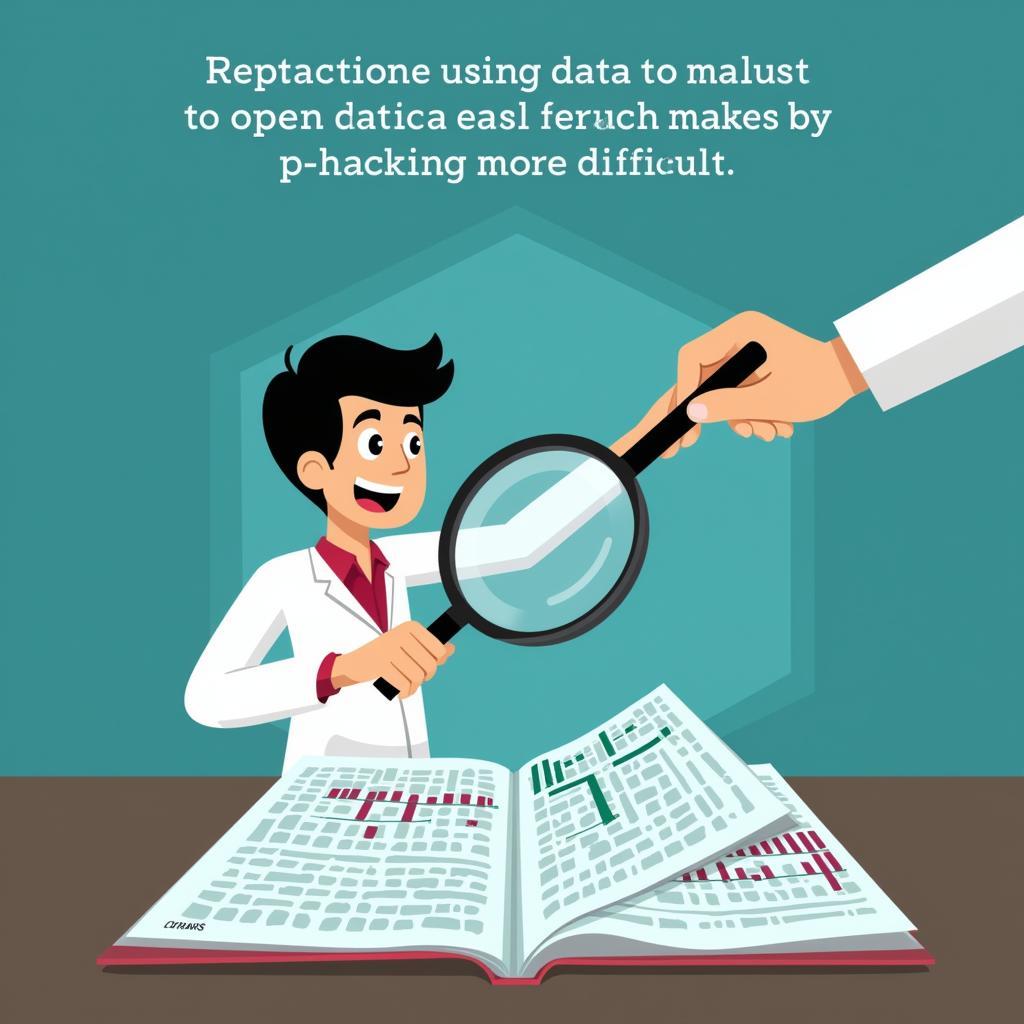Open data plays a crucial role in safeguarding against questionable research practices. It promotes transparency and allows for scrutiny, making it harder for researchers to manipulate data or misrepresent findings. This increased accountability ultimately strengthens the integrity of research.
How Open Data Combats Questionable Research Practices
Open data initiatives encourage the sharing of raw data, methodologies, and code used in research. This transparency combats several questionable research practices:
- P-Hacking: Open data makes it difficult to engage in p-hacking, the practice of manipulating statistical analyses until a desired p-value (indicating statistical significance) is achieved. With access to the original data, others can replicate the analysis and verify the results.
- HARKing (Hypothesizing After Results are Known): HARKing involves presenting a post-hoc hypothesis as if it were a priori. Open data allows reviewers and other researchers to examine the original hypotheses and compare them to the final publication, identifying potential HARKing.
- Cherry-Picking: This involves selectively reporting only data that supports the desired outcome while ignoring contradictory evidence. Open data allows for examination of the complete dataset, revealing any omitted data or selective reporting.
- Data Fabrication and Falsification: While open data doesn’t entirely prevent data fabrication, it makes it significantly harder. The possibility of independent verification deters fraudulent activities.
 Open Data Preventing P-hacking
Open Data Preventing P-hacking
The Benefits of Open Data in Research
Beyond protecting against questionable practices, open data offers numerous benefits:
- Increased Reproducibility: Sharing data and code allows others to reproduce research findings, increasing confidence in the validity of the results.
- Enhanced Collaboration: Open data fosters collaboration and allows researchers to build upon existing work, accelerating scientific progress.
- Greater Public Trust: Transparency promotes trust in the research process and strengthens the credibility of scientific findings.
- New Discoveries: Open datasets can be analyzed from different perspectives, leading to new insights and unexpected discoveries.
What are the Challenges of Implementing Open Data?
Despite its benefits, implementing open data practices faces challenges:
- Data Privacy Concerns: Sharing data, especially in sensitive areas like healthcare, requires careful consideration of privacy and anonymity.
- Data Management and Storage: Organizing and storing large datasets can be complex and require significant resources.
- Cost of Implementation: Setting up and maintaining open data infrastructure can be expensive.
- Lack of Standardization: The lack of standardized data formats can make sharing and analyzing data difficult.
Conclusion
Open data is a powerful tool for promoting ethical research practices. By increasing transparency and accountability, open data protects against questionable research practices like p-hacking, HARKing, and cherry-picking. While challenges remain in implementation, the benefits of open data for research integrity and scientific progress are undeniable. Open data is key to ensuring trust and fostering collaboration in the scientific community.
FAQ
- What is open data?
- How does open data differ from publicly available data?
- What are the ethical considerations for sharing open data?
- What are some examples of open data repositories?
- How can researchers ensure the privacy of individuals when sharing open data?
- What are the legal implications of sharing open data?
- How can researchers find open datasets relevant to their research?
Common Scenarios Where Open Data Is Crucial
- Investigating potential research misconduct
- Replicating published findings
- Conducting meta-analyses
- Developing new research questions based on existing data
- Training machine learning models
Further Exploration
Explore more about data integrity and research ethics on our website. You can also learn about specific cases where open data has exposed questionable research practices.
Need support? Contact us 24/7 at Phone: 0904826292, Email: research@gmail.com or visit us at No. 31, Alley 142/7, P. Phú Viên, Bồ Đề, Long Biên, Hà Nội, Việt Nam.